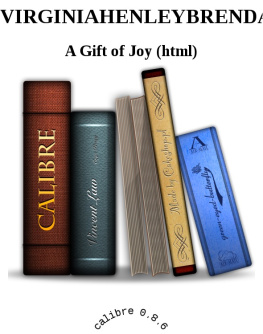William Ernest Henley - William Ernest Henley - Delphi Poets Series
Here you can read online William Ernest Henley - William Ernest Henley - Delphi Poets Series full text of the book (entire story) in english for free. Download pdf and epub, get meaning, cover and reviews about this ebook. year: 2020, publisher: Delphi Classics, genre: Home and family. Description of the work, (preface) as well as reviews are available. Best literature library LitArk.com created for fans of good reading and offers a wide selection of genres:
Romance novel
Science fiction
Adventure
Detective
Science
History
Home and family
Prose
Art
Politics
Computer
Non-fiction
Religion
Business
Children
Humor
Choose a favorite category and find really read worthwhile books. Enjoy immersion in the world of imagination, feel the emotions of the characters or learn something new for yourself, make an fascinating discovery.
- Book:William Ernest Henley - Delphi Poets Series
- Author:
- Publisher:Delphi Classics
- Genre:
- Year:2020
- Rating:4 / 5
- Favourites:Add to favourites
- Your mark:
- 80
- 1
- 2
- 3
- 4
- 5
William Ernest Henley - Delphi Poets Series: summary, description and annotation
We offer to read an annotation, description, summary or preface (depends on what the author of the book "William Ernest Henley - Delphi Poets Series" wrote himself). If you haven't found the necessary information about the book — write in the comments, we will try to find it.
William Ernest Henley - Delphi Poets Series — read online for free the complete book (whole text) full work
Below is the text of the book, divided by pages. System saving the place of the last page read, allows you to conveniently read the book "William Ernest Henley - Delphi Poets Series" online for free, without having to search again every time where you left off. Put a bookmark, and you can go to the page where you finished reading at any time.
Font size:
Interval:
Bookmark:


William Ernest Henley
(1849-1903)

Contents

Delphi Classics 2020
Version 1









Browse the entire series


William Ernest Henley

By Delphi Classics, 2020
William Ernest Henley - Delphi Poets Series
First published in the United Kingdom in 2020 by Delphi Classics.
Delphi Classics, 2020.
All rights reserved. No part of this publication may be reproduced, stored in a retrieval system, or transmitted, in any form or by any means, without the prior permission in writing of the publisher, nor be otherwise circulated in any form other than that in which it is published.
ISBN: 978 1 91348 731 7
Delphi Classics
is an imprint of
Delphi Publishing Ltd
Hastings, East Sussex
United Kingdom
Contact: sales@delphiclassics.com

www.delphiclassics.com
NOTE

When reading poetry on an eReader, it is advisable to use a small font size and landscape mode, which will allow the lines of poetry to display correctly.

View of Gloucester by Thomas Hearne, c. 1805 Henley was born in Gloucester on 23 August 1849. His mother was Mary Morgan, a descendant of poet and critic Joseph Warton, and his father was William, a bookseller and stationer.

Gloucester, a cathedral city in the South West of England

From 1911 Encyclopdia Britannica, Volume 13
WILLIAM ERNEST HENLEY, (18491903), British poet, critic and editor, was born on the 23rd of August 1849 at Gloucester, and was educated at the Crypt Grammar School in that city. The school was a sort of Cinderella sister to the Cathedral School, and Henley indicated its shortcomings in his article ( Pall Mall Magazine , Nov. 1900) on T. E. Brown the poet, who was headmaster there for a brief period. Browns appointment, uncongenial to himself, was a stroke of luck for Henley, for whom, as he said, it represented a first acquaintance with a man of genius. He was singularly kind to me at a moment when I needed kindness even more than I needed encouragement. Among other kindnesses Brown did him the essential service of lending him books. To the end Henley was no classical scholar, but his knowledge and love of literature were vital. Afflicted with a physical infirmity, he found himself in 1874, at the age of twenty-five, an inmate of the hospital at Edinburgh. From there he sent to the Cornhill Magazine poems in irregular rhythms, describing with poignant force his experiences in hospital. Leslie Stephen, then editor, being in Edinburgh, visited his contributor in hospital and took Robert Louis Stevenson, another recruit of the Cornhill , with him. The meeting between Stevenson and Henley, and the friendship of which it was the beginning, form one of the best-known episodes in recent literature (see especially Stevensons letter to Mrs Sitwell, Jan. 1875, and Henleys poems An Apparition and Envoy to Charles Baxter). In 1877 Henley went to London and began his editorial career by editing London , a journal of a type more usual in Paris than London, written for the sake of its contributors rather than of the public. Among other distinctions it first gave to the world The New Arabian Nights of Stevenson. Henley himself contributed to his journal a series of verses chiefly in old French forms. He had been writing poetry since 1872, but (so he told the world in his advertisement to his collected Poems , 1898) he found himself about 1877 so utterly unmarketable that he had to own himself beaten in art and to addict himself to journalism for the next ten years. After the decease of London , he edited the Magazine of Art from 1882 to 1886. At the end of that period he came before the public as a poet. In 1887 Mr Gleeson White made for the popular series of Canterbury Poets (edited by Mr William Sharp) a selection of poems in old French forms. In his selection Mr Gleeson White included a considerable number of pieces from London , and only after he had completed the selection did he discover that the verses were all by one hand, that of Henley. In the following year, Mr H. B. Donkin in his volume Voluntaries , done for an East End hospital, included Henleys unrhymed rhythms quintessentializing the poets memories of the old Edinburgh Infirmary. Mr Alfred Nutt read these, and asked for more; and in 1888 his firm published A Book of Verse . Henley was by this time well known in a restricted literary circle, and the publication of this volume determined for them his fame as a poet, which rapidly outgrew these limits, two new editions of this volume being called for within three years. In this same year (1888) Mr Fitzroy Bell started the Scots Observer in Edinburgh, with Henley as literary editor, and early in 1889 Mr Bell left the conduct of the paper to him. It was a weekly review somewhat on the lines of the old Saturday Review , but inspired in every paragraph by the vigorous and combative personality of the editor. It was transferred soon after to London as the National Observer , and remained under Henleys editorship until 1893. Though, as Henley confessed, the paper had almost as many writers as readers, and its fame was mainly confined to the literary class, it was a lively and not uninfluential feature of the literary life of its time. Henley had the editors great gift of discerning promise, and the Men of the Scots Observer , as Henley affectionately and characteristically called his band of contributors, in most instances justified his insight. The paper found utterance for the growing imperialism of its day, and among other services to literature gave to the world Mr Kiplings Barrack-Room Ballads . In 1890 Henley published Views and Reviews , a volume of notable criticisms, described by himself as less a book than a mosaic of scraps and shreds recovered from the shot rubbish of some fourteen years of journalism. The criticisms, covering a wide range of authors (except Heine and Tolstoy, all English and French), though wilful and often one-sided were terse, trenchant and picturesque, and remarkable for insight and gusto. In 1892 he published a second volume of poetry, named after the first poem, The Song of the Sword , but on the issue of the second edition (1893) re-christened London Voluntaries after another section. Stevenson wrote that he had not received the same thrill of poetry since Mr Merediths Joy of Earth and Love in the Valley, and he did not know that that was so intimate and so deep. I did not guess you were so great a magician. These are new tunes; this is an undertone of the true Apollo. These are not verse; they are poetry. In 1892 Henley published also three plays written with Stevenson Beau Austin , Deacon Brodie and Admiral Guinea . In 1895 followed Macaire , afterwards published in a volume with the other plays. Deacon Brodie was produced in Edinburgh in 1884 and later in London. Beerbohm Tree produced Beau Austin at the Haymarket on the 3rd of November 1890 and Macaire at His Majestys on the 2nd of May 1901. Admiral Guinea also achieved stage performance. In the meantime Henley was active in the magazines and did notable editorial work for the publishers: the Lyra Heroica , 1891; A Book of English Prose (with Mr Charles Whibley), 1894; the centenary Burns (with Mr T. F. Henderson) in 18961897, in which Henleys Essay (published separately 1898) roused considerable controversy. In 1892 he undertook for Mr Nutt the general editorship of the Tudor Translations ; and in 1897 began for Mr Heinemann an edition of Byron, which did not proceed beyond one volume of letters. In 1898 he published a collection of his Poems in one volume, with the autobiographical advertisement above quoted; in 1899 London Types , Quatorzains to accompany Mr William Nicolsons designs; and in 1900 during the Boer War, a patriotic poetical brochure, For Englands Sake . In 1901 he published a second volume of collected poetry with the title Hawthorn and Lavender , uniform with the volume of 1898. In 1902 he collected his various articles on painters and artists and published them as a companion volume of Views and Reviews: Art . These with A Song of Speed printed in May 1903 within two months of his death make up his tale of work. At the close of his life he was engaged upon his edition of the Authorized Version of the Bible for his series of Tudor Translations . There remained uncollected some of his scattered articles in periodicals and reviews, especially the series of literary articles contributed to the Pall Mall Magazine from 1899 until his death. These contain the most outspoken utterances of a critic never mealy-mouthed, and include the splenetic attack on the memory of his dead friend R. L. Stevenson, which aroused deep regret and resentment. In 1894 Henley lost his little six-year-old daughter Margaret; he had borne the bludgeonings of chance with the unconquerable soul of which he boasted, not unjustifiably, in a well-known poem; but this blow broke his heart. With the knowledge of this fact, some of these outbursts may be better understood; yet we have the evidence of a clear-eyed critic who knew Henley well, that he found him more generous, more sympathetic at the close of his life than he had been before. He died on the 11th of July 1903. In spite of his too boisterous mannerism and prejudices, he exercised by his originality, independence and fearlessness an inspiring and inspiriting influence on the higher class of journalism. This influence he exercised by word of mouth as well as by his pen, for he was a famous talker, and figures as Burly in Stevensons essay on Talk and Talkers . As critic he was a good hater and a good fighter. His virtue lay in his vital and vitalizing love of good literature, and the vivid and pictorial phrases he found to give it expression. But his fame must rest on his poetry. He excelled alike in his delicate experiments in complicated metres, and the strong impressionism of Hospital Sketches and London Voluntaries . The influence of Heine may be discerned in these unrhymed rhythms; but he was perhaps a truer and more successful disciple of Heine in his snatches of passionate song, the best of which should retain their place in English literature.
Next pageFont size:
Interval:
Bookmark:
Similar books «William Ernest Henley - Delphi Poets Series»
Look at similar books to William Ernest Henley - Delphi Poets Series. We have selected literature similar in name and meaning in the hope of providing readers with more options to find new, interesting, not yet read works.
Discussion, reviews of the book William Ernest Henley - Delphi Poets Series and just readers' own opinions. Leave your comments, write what you think about the work, its meaning or the main characters. Specify what exactly you liked and what you didn't like, and why you think so.

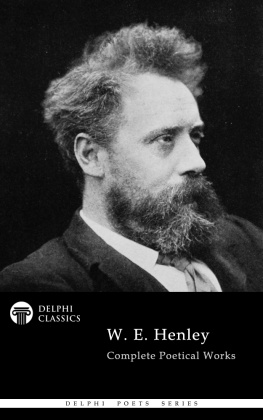
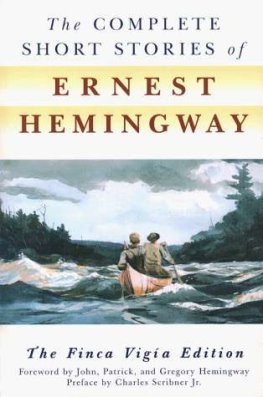
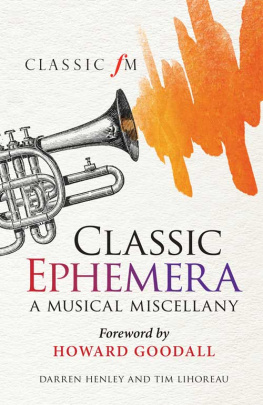

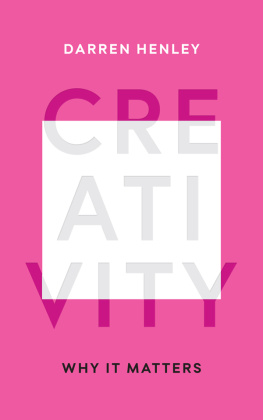

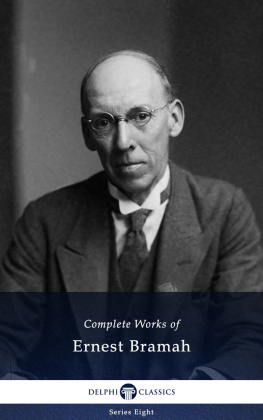

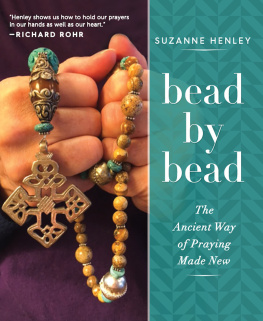

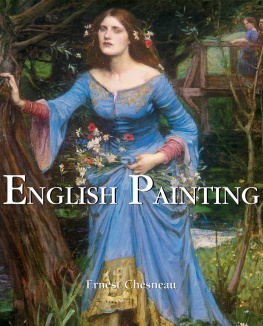
![Ernest Adams [Ernest Adams] - Fundamentals of Adventure Game Design](/uploads/posts/book/119415/thumbs/ernest-adams-ernest-adams-fundamentals-of.jpg)
